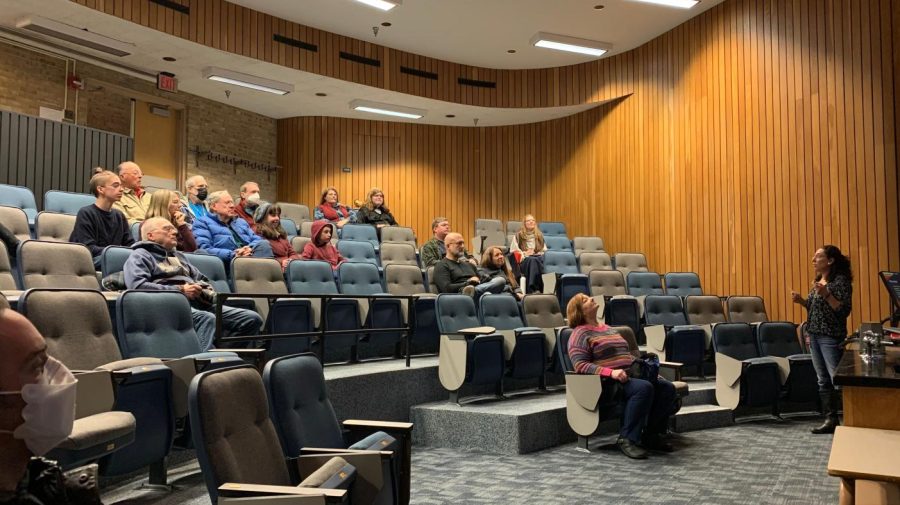Super Science club hosts star party
Daryl Cooke, a NASA solar system ambassador, speaks to students and faculty in the Dragun Lecture Hall during the lecture portion of a Super Science club event on Saturday.
November 22, 2022
For the first time since the COVID-19 pandemic began, the student Super Science club hosted an in-person speaker Saturday.
Daryl Cooke, a NASA solar system ambassador, spoke to students and faculty at AACC about comets, asteroids and meteors.
The event brought attendees to the observatory on the Arnold Campus, where they viewed Jupiter, Saturn and the Andromeda Galaxy.
“I was surprised at the turnout,” Zoe Brunton, an organizer of the event and a member of the Super Science club, said. “We got way more people than I was expecting. So it was … great.”
The Observatory at AACC, a building with a retractable ceiling and telescopes, is managed by the Astronomy Department and allows students to see the stars and different parts of the Milky Way and surrounding galaxies.
“All of the telescopes here are really expensive and require a lot of upkeep,” Brunton, a second-year astronomy and physics student, said. “This observatory … offers up an opportunity for anyone who wants … to look at the stars.”
Students who attended the event said they enjoyed the opportunity to look at the stars.
“We made our way down to the observatory, and we saw clusters of stars, Jupiter and Saturn,” Kimberly Betters, a fourth-year education student, said. “In Maryland I feel like it’s hard to see stars, so it’s nice to have equipment to see things I usually can’t see.”
Ryan Oberteuffer, a second-year computer science student, agreed.
“I think it’s really cool that you can actually see the disk of the Galilean moons through the telescope,” Oberteuffer said. “I had no idea that the telescopes here were that powerful. That’s very cool.”













Kathy Jones • Nov 23, 2022 at 9:23 AM
I want to join now, sounds like it was a great event! This article should have ended with how to join the Super Science Club!
Campus Current • Nov 24, 2022 at 1:15 PM
Hi Kathy, the Super Science club meets from 3-4 on Tuesdays in MAT-102. You can also attend over Zoom!